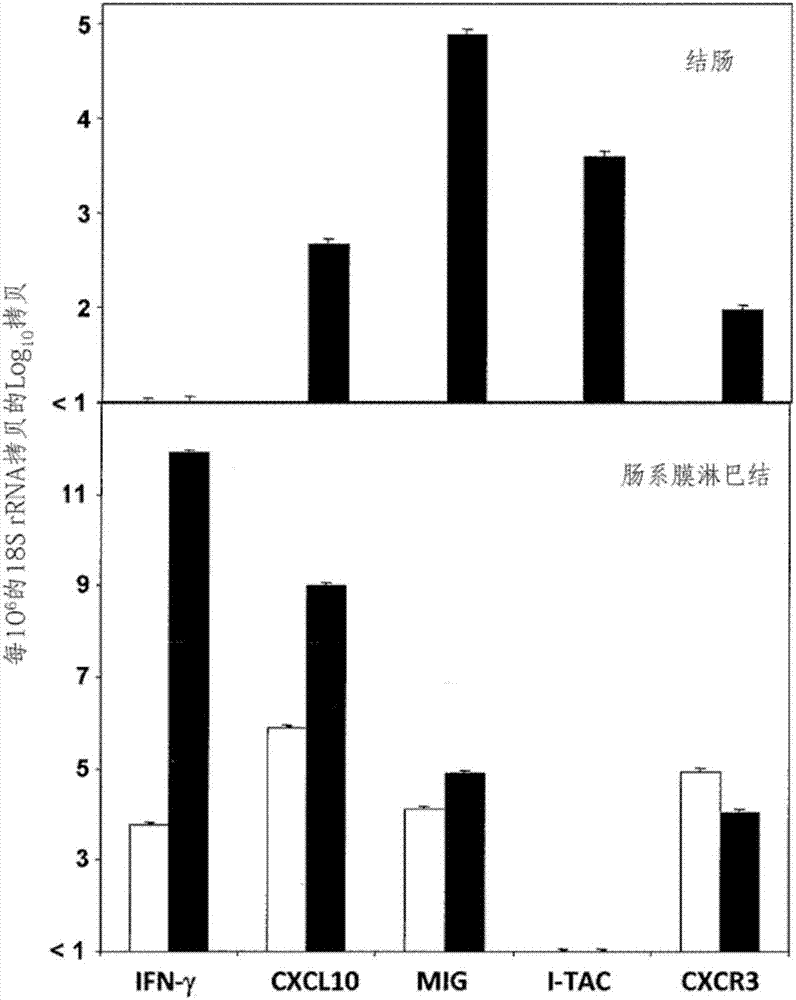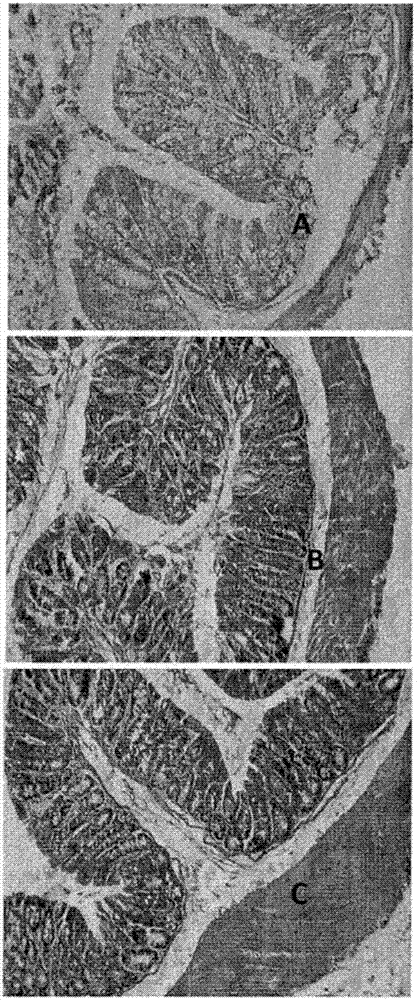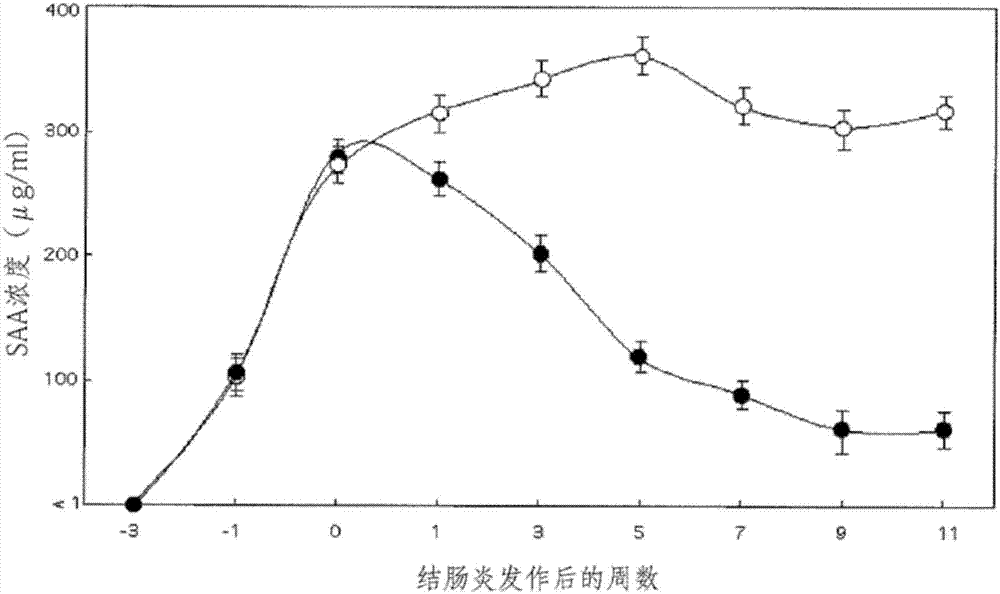Anti-CXCL9, anti-CXCL10, anti-CXCL11, anti-CXCL13, anti-CXCR3 and anti-CXCR5 reagents used for inflammatory diseases
A technology for inflammatory diseases and CCR5, applied in anti-inflammatory agents, metabolic diseases, disease diagnosis, etc., can solve the problem of unclear exact mechanism of chemokine-mediated events
- Summary
- Abstract
- Description
- Claims
- Application Information
AI Technical Summary
Problems solved by technology
Method used
Image
Examples
Embodiment 1
[0226] Example 1: Upregulation of chemokines and their receptors in inflammatory diseases
[0227] Materials and methods
[0228]The protein sequences of the chemokines used herein are recorded in NIH-NCBI GenBank as follows: (1) CXCR1 (ACCESSION #NP 000625), (2) CXCR2 (ACCESSION #NP001548), (3) CXCL1 (ACCESSION #NP001502), ( 4) CXCL2 (ACCESSION#NP 002080), (5) CXCL3 (ACCESSION#NP 002081), (6) CXCL5 (ACCESSION#NP 002985), (7) CXCL6 (ACCESSION#NP 002984), (8) CXCL7 (ACCESSION# NP002695), (9) CXCL8 (IL-8, ACCESSION#NP 000575), (10) CXCR4 (ACCESSION#NP 003458), (11) CXCL12 (ACCESSION#NP 000600), (12) CXCR5A (ACCESSION#NP 116743) 、(13)CXCR5B(ACCESSION#NP001707),(14)CXCL13(ACCESSION#NP006410),(15)CXCR6(ACCESSION#NP006555),(16)CXCL16(ACCESSION#NP071342),(17)CCL16(ACCESSION#NP071342),(17)CCL16(ACCESSION#NP006410), 004581), (18) CCL25 (ACCESSION#NP_005616.2), (19) CCL25-1 (ACCESSION#NP005615), (20) CCL25-2 (ACCESSION#NP 683686), (21) CX3CR1 (ACCESSION#NP 001328) and (22) CX3CL1 (...
Embodiment 2
[0246] Example 2: mRNA expression of IFN-γ, CXCL10, MIG, I-TAC, and CXCR3 in murine colitis
[0247] figure 1 The mRNA expression of IFN-γ, CXCL10, MIG, I-TAC and CXCR3 during murine colitis is shown. IL-10 reared from cages with a C57BL / 6 background - / -Mice were removed from the laminar flow barrier to naturally develop colitis. After sacrifice, total RNA was isolated from the colon or mesenteric lymph nodes of mice before the onset of colitis (sterile conditions, blank rectangular bars) and after colitis onset (filled rectangular bars). IFN-γ, IP-10, MIG, I-TAC and CXCR3 mRNA expression levels were determined following RT-PCT analysis capable of detecting greater than 20 copies of transcribed cDNA. exist figure 1 In, the Log of the transcript 10 Copies are expressed relative to the true copy of 18S rRNA.
[0248] Such as figure 1 showed that IL-10 in patients with colitis - / - Significant increases in CXCR3 and CXCL10 expression were observed in the inflamed colon o...
Embodiment 3
[0249] Example 3: Reception of CD45RB by adoptive transfer HI or CXCR3 + CD4 + TCRβxδ of T cells - / - in mice Histological Analysis of IBD
[0250] figure 2 Shows acceptance of CD45RB by adoptive transfer HI or CXCR3 + CD4 + TCRβxδ of T cells - / - Histological analysis of IBD in mice. CD45RB received from normal C57BL / 6 mice Lo - (Panel A), CD45RB Hi - (Panel B) or CXCR3 + -CD4 + TCRβxδ of T cells (Panel C) - / - 60X magnification of enteritis in mice. Transverse sections of the intestine showed differences in wall thickness, enlargement of the mucosal layer, crypt deformation, and leukocyte infiltration using hematoxylin-eosin stained 6 μm paraffin sections.
[0251] This analysis revealed that CXCR3, both composed of the CD45RB population, + CD4 + T cells in TCRβxδ - / - Induction of colitis was induced in mice (Panel C)
PUM
 Login to View More
Login to View More Abstract
Description
Claims
Application Information
 Login to View More
Login to View More - R&D
- Intellectual Property
- Life Sciences
- Materials
- Tech Scout
- Unparalleled Data Quality
- Higher Quality Content
- 60% Fewer Hallucinations
Browse by: Latest US Patents, China's latest patents, Technical Efficacy Thesaurus, Application Domain, Technology Topic, Popular Technical Reports.
© 2025 PatSnap. All rights reserved.Legal|Privacy policy|Modern Slavery Act Transparency Statement|Sitemap|About US| Contact US: help@patsnap.com



